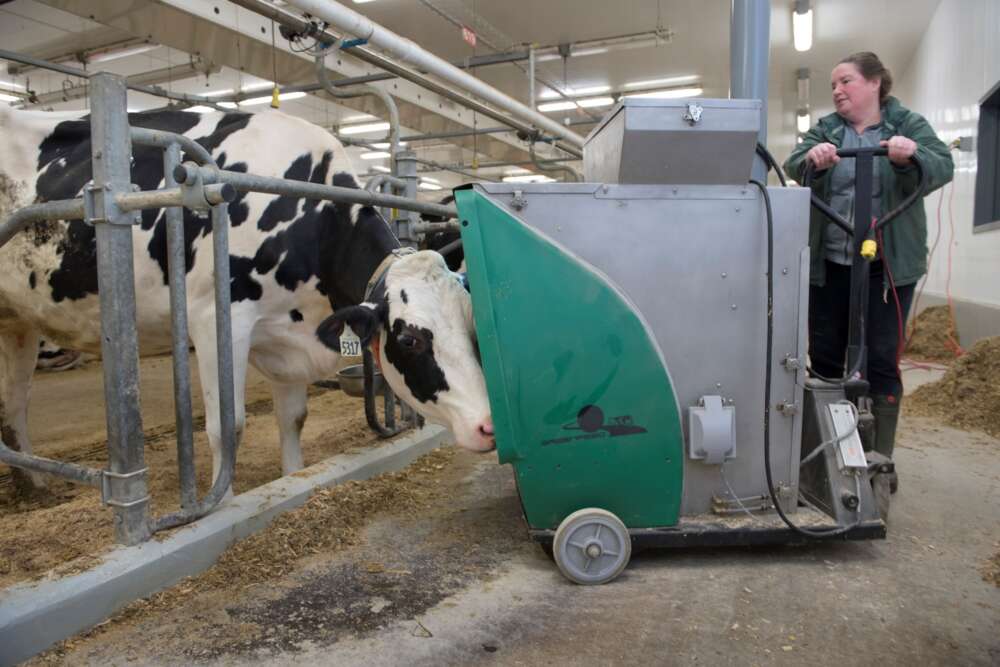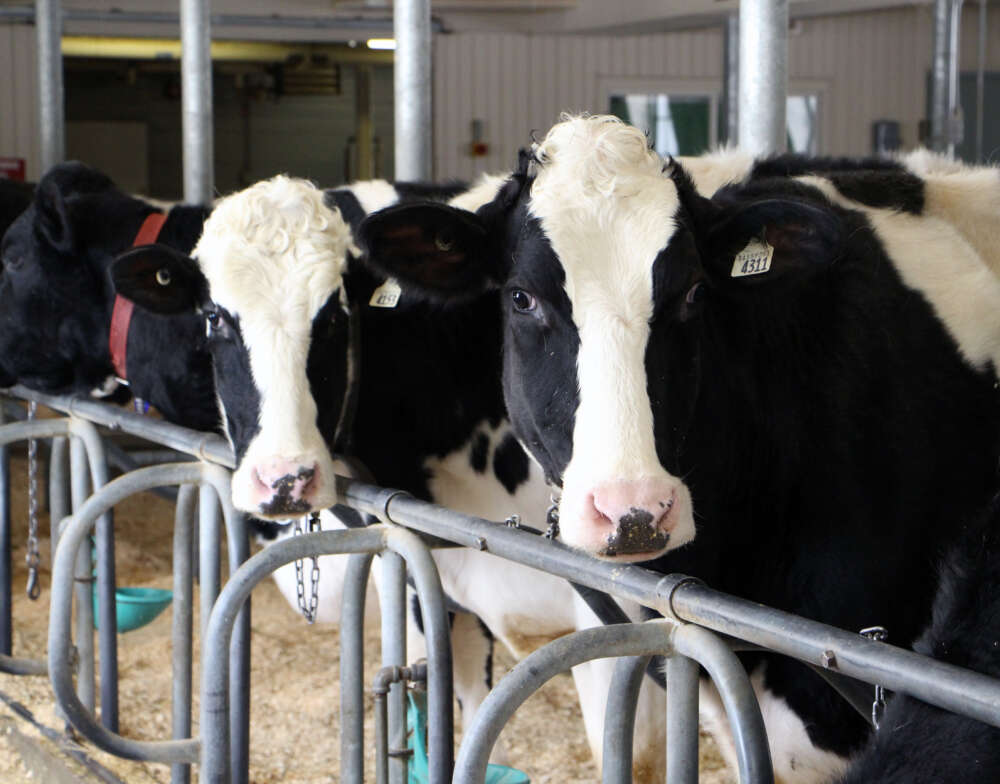A University of Guelph innovation that uses genetic selection methods to reduce methane emissions in dairy cattle has received the University’s Innovation of the Year Award for 2023.
The annual awards from the Office of Research and the Research Innovation Office recognize researchers for creative strategies or products that make a difference in people’s lives.
The team behind this year’s winning innovation comprise an international collaboration of researchers and industry partners, including U of G researchers Dr. Christine Baes, Dr. Flavio Schenkel and Dr. Saeed Shadpour from the Department of Animal Biosciences in the Ontario Agricultural College, as well as Dr. Filippo Miglior from Lactanet Canada and Dr. Francesca Malchiodi from Semex.
They developed a national genetic evaluation to identify dairy cattle with traits that help reduce methane emissions.
“At the University of Guelph, we transform knowledge into real-world innovations,” said Dr. Rene Van Acker, interim vice-president (research). “Driven by ingenuity, we’re dedicated to finding solutions that address global challenges, making a lasting impact on the world around us.”
The team gathered data on milk, feed intake, methane emissions, fertility and health in dairy cattle, and genomic information. This comprehensive collection enabled them to establish a significant reference population, measuring individual cows’ methane emissions and creating a dataset for genetic selection.
The researchers then used mid-infrared reflectance spectroscopy data (MIRS) from milk samples to accurately predict cows’ methane emissions.
Genomic selection holds significant potential

“I believe genomic selection holds significant potential in addressing challenging traits,” said Baes. “Whether it’s grappling with the complexities of climate change or other environmental issues, the right people and a strategic movement forward can play a crucial role in contributing to their resolution.”
Baes and her team collaborated with two key industry partners: Lactanet, a prominent milk recording agency responsible for national genetic evaluations in dairy; and Semex, a leading genetics company. These partners played pivotal roles in transforming research findings into practical applications.
“Lactanet and Semex were instrumental in financing, providing data, and driving the practical application of the research,” said Baes. “Thanks to this collaboration, Canada has become the first country in the world to have national evaluations for methane emissions.”
“Lactanet Canada proudly invests in collaborative research projects led by the University of Guelph’s Centre for Genetic Improvement of Livestock,” said Brian Van Doormaal, Chief Services Officer, Lactanet Canada. “Through these collaborations, Lactanet Canada is a global leader in implementing innovative genomic tools to enhance dairy cattle sustainability, contributing to the industry’s net-zero objective by 2050.”
In response to climate change, the dairy industry aims to achieve a net-zero status by 2050.
“Semex is excited about Dr. Baes and her team’s groundbreaking work at the University of Guelph to reduce methane emissions,” says Michael Lohuis, vice president of research and innovation at Semex. “Their breakthrough in predicting methane emissions from a milk sample has led to the development of genetic rankings, simplifying the selection of lower methane genetics for dairy producers.”
The research, started in 2012 through a collaboration between U of G researchers and Lactanet, involved collecting MIRS data from milk samples in registered herds in Canada. Lactanet has been storing this data for national genetic evaluations of dairy cattle ever since.
Measuring GHG emissions from dairy cattle

The Efficient Dairy Genome Project (EDGP), launched in 2015 and led by Miglior and Dr. Paul Stothard from the University of Alberta, focused on gathering methane emission and feed efficiency data for a standardized database. The Resilient Dairy Genome Project (RDGP) began in 2019 and grew from the EDGP. For the RDGP, Baes, Stothard, Dr. Ronaldo Cerri from University of British Columbia and Dr. Marc-André Sirard from Université Laval, expanded the database to include additional methane and feed efficiency data, as well as information on novel fertility and health traits.
Baes says a new project in this series has recently been approved. The team will aim to collect large-scale data on commercial farms in Canada, further developing the reference population.
“The goal is to collaborate with Environment and Climate Change Canada as well as dairy nutritionists and life cycle analysts to quantify greenhouse gas emissions from dairy cattle more accurately,” says Baes. “The ultimate goal is to contribute to Canada’s greenhouse gas emission inventory in reducing its environmental footprint.”
This research was funded by various organizations including the Ontario Agri-Food Innovation Alliance, a collaboration between the Government of Ontario and the University of Guelph, and took place, in part, at the Ontario Dairy Research Centre, which is owned by the Agricultural Research Institute of Ontario and managed by U of G through the Alliance.
